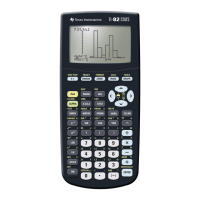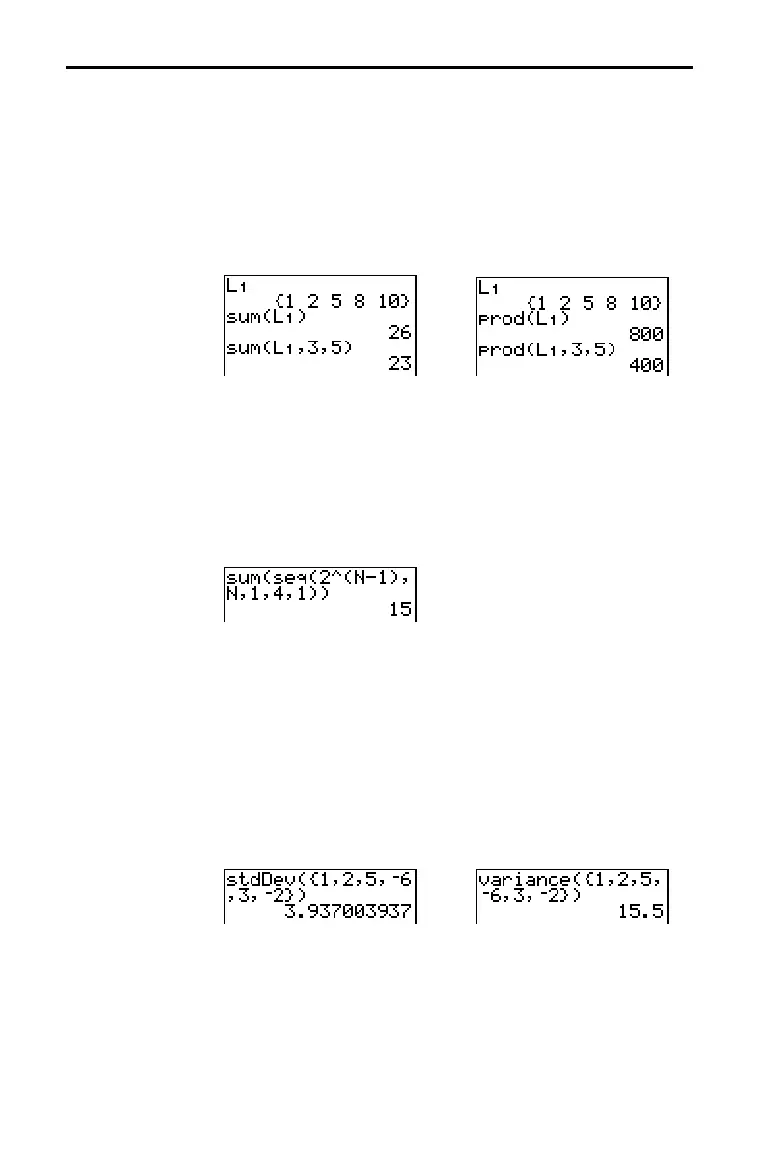11–18 Lists
826886~1.DOC TI-83 international English Bob Fedorisko Revised: 10/26/05 1:33 PM Printed: 10/27/05 2:50
PM Page 18 of 18
sum( (summation) returns the sum of the elements in list. start
and end are optional; they specify a range of elements. list
elements can be real or complex numbers.
prod( returns the product of all elements of list. start and end
elements are optional; they specify a range of list elements. list
elements can be real or complex numbers.
sum(list[,start,end]) prod(list[,start,end])
You can combine sum( or prod( with seq( to obtain:
upper upper
G
expression(x)
∏
∏∏
∏
expression(x)
x=lower x=lower
To evaluate G 2
(N–1)
from N=1 to 4:
stdDev( returns the standard deviation of the elements in list. The
default value for freqlist is 1. Each freqlist element counts the
number of consecutive occurrences of the corresponding element in
list. Complex lists are not valid.
variance( returns the variance of the elements in list. The default
value for freqlist is 1. Each freqlist element counts the number of
consecutive occurrences of the corresponding element in list.
Complex lists are not valid.
stdDev(list[,freqlist]) variance(list[,freqlist])
LIST MATH Menu (continued)
sum(, prod(
Sums and
Products of
Numeric
Sequences
stdDev(,
variance(

